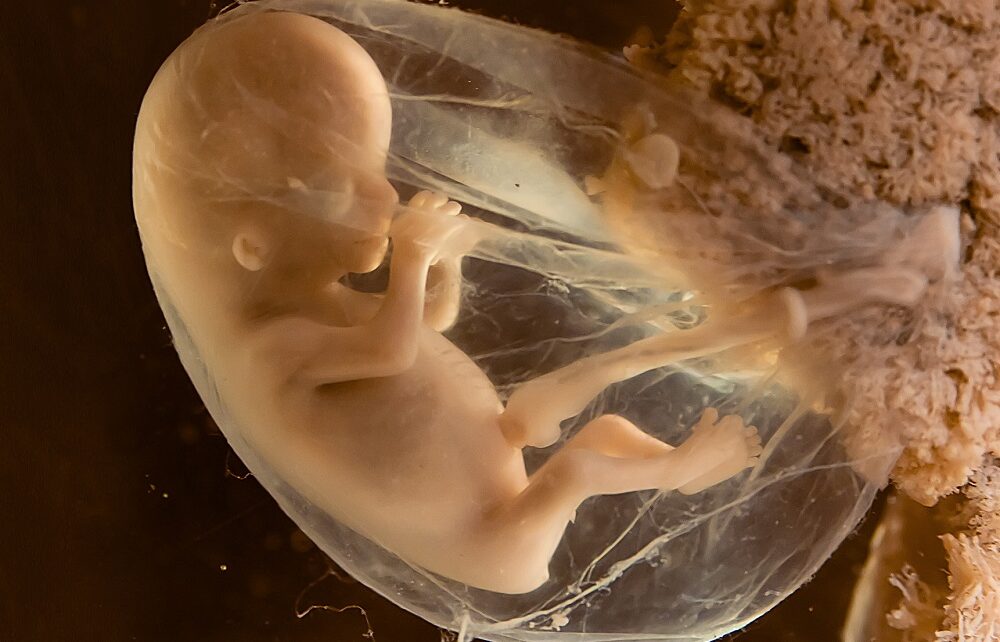
Reproductive Immunology: What it is, causes, treatment and how it can affect the achievement of pregnancy
Pregnancy is a physiological state that conceptually challenges the foundations of immunology. While pregnant, the mother has to coexist with a being different from herself in at least half of its genetic origin. The, so-called, “tolerating the intruder” contradicts the principle of how the immune system functions: “tolerating one’s own and rejecting that of others“.
Índice
Types of immune system disorders
This sentence is also very useful to understand the pathologies derived from the alterations of normal functioning of the immune system.
- On one hand, there is immune rejection, such as in transplants or transfusions, in which the immune system identifies cells foreign to the subject and attacks them in order to eliminate them.
- On the other hand we can deal with an error in identifying one’s own cells, which gives rise to autoimmune diseases. The cells of the immune system identify as foreign the subject’s own cells leading to its activation or over-activation, which, consequently, causes different symptoms of the myriad of autoimmune diseases.
Without a doubt we can say that both the embryo implantation and the correct development of the pregnancy are physiological phenomena in which the participation of the immune system is fundamental, since the pregnancy is defined as a state of transitory immunotolerance.
Knowledge about the immune system in pregnancy
At present, the state of scientific knowledge on this subject does not offer any explanation as to how the immune system and its agents should work, so that after the embryo transfer things would follow the course we desire until the birth of a healthy child.
This situation is due to two historical reasons:
- Firstly, the immune system could not be studied by assimilation to other traditional sciences such as physics or chemistry.
- Secondly, it is composed mainly of cells that are ubiquitous in the body, which has influenced the ability to observe them and their organs, which were of minimal importance in classical anatomical studies.
The immune factor in embryo implantation failure and recurrent miscarriages
It has been proposed that the incorrect participation of the immune system in the implantation and development of the pregnancy could lead to two of the most concerning pathologies in the reproductive medicine: recurrent implantation failure (defined as the absence of gestation after several healthy embryo transfers) and recurrent pregnancy loss (defined as having suffered two or more miscarriages).
Considering different ways in which the immune system can fail and cause pathology, we could take into account two theoretical frameworks in order to explain different situations that could lead to implantation failures or recurrent miscarriages:
1. First of all, we should consider alterations at the local level – in the endometrium. They are linked to errors in the activation and functioning of immune cells. It is very important to note that at this basic level the proper involvement of the immune system is both active in some aspects and passive or silent in others.
The immune cells most strongly involved locally are: the uterine NK cells (Natual Killer cells), T lymphocytes, especially Treg and Th17. Nevertheless, the role of other immune cells types (such as Th1 and Th2 lymphocytes, macrophages, B lymphocytes, antigen-presenting cells or APC) is also described.
The immune cells exert their effect either directly, in isolation or by interacting with each other, or indirectly through various molecules. Broadly speaking, we can classify immune cells as pro-inflammatory and anti-inflammatory molecules, called cytokines. Simplifying, let us say that the predominant correct state should be the one which has traditionally been understood as anti-inflammatory. Nevertheless, it cannot be understood as a total suppression of the immune function.
2. Secondly, the existence of peripheral autoantibodies associated with different autoimmune diseases would lead to a non-specific activation of the immune system, either by excess or by defect, which could lead to the situations already known.
Examples of this are decreased fertility, parity and increased miscarriage rates that seem to be associated with various autoimmune diseases. It is important to note that for most diseases, the data are either insufficient or contradictory. However, there is more evidence for diseases such as antiphospholipid syndrome, autoimmune thyroid disease, systemic lupus erythematosus or type 1 diabetes.
Treatments for immune system disorders in reproduction
Given that the physio-pathological knowledge is scarce regarding the alterations of the immune system and the disorders of the implantation and the evolution of pregnancy, the search for solutions and treatments is also erratic and not exempt from the fashions and trends of scientific knowledge and system of publications.
- Different treatments have been used to modify the immune response to implantation and establishment of pregnancy. Out of them, without any doubt, corticoids are the most used and known ones.
- Other treatments that have also been proposed are intravenous gamma globulins and intralipid infusions. There are currently several lines of research with immunomodulatory drugs used for treatment of autoimmune diseases (tacrolimus®, adalimubab®).
- An antithrombotic such as heparin (Clexane®, Innohep®) is also said to exert an interesting immunomodulatory effect in implantation failure or repeated miscarriages.
The reality is that all these therapies are considered to be experimental. Due to the scarce and uncertain evidence no scientific society of reproductive medicine advises their use.
The only combination that has been shown to be effective in improving the prognosis is the use of heparin and acetylsalicylic acid in the treatment of antiphospholipid syndrome.
Reproductive immunology is an area of reproductive medicine of great and wide-ranging interest. Nevertheless, at present we lack the certainty that allows us to use diagnostic tests universally for the study of implantation failure and recurrent miscarriages.
This also leads us to the absence of treatments that can reliably improve the prognosis of the treatments our patients.
At Instituto Bernabeu we have a unit dedicated to diagnosis and treatment in the area of reproductive immunology.
Dr Cristina García-Ajofrín, gyneacologist at Instituto Bernabeu
